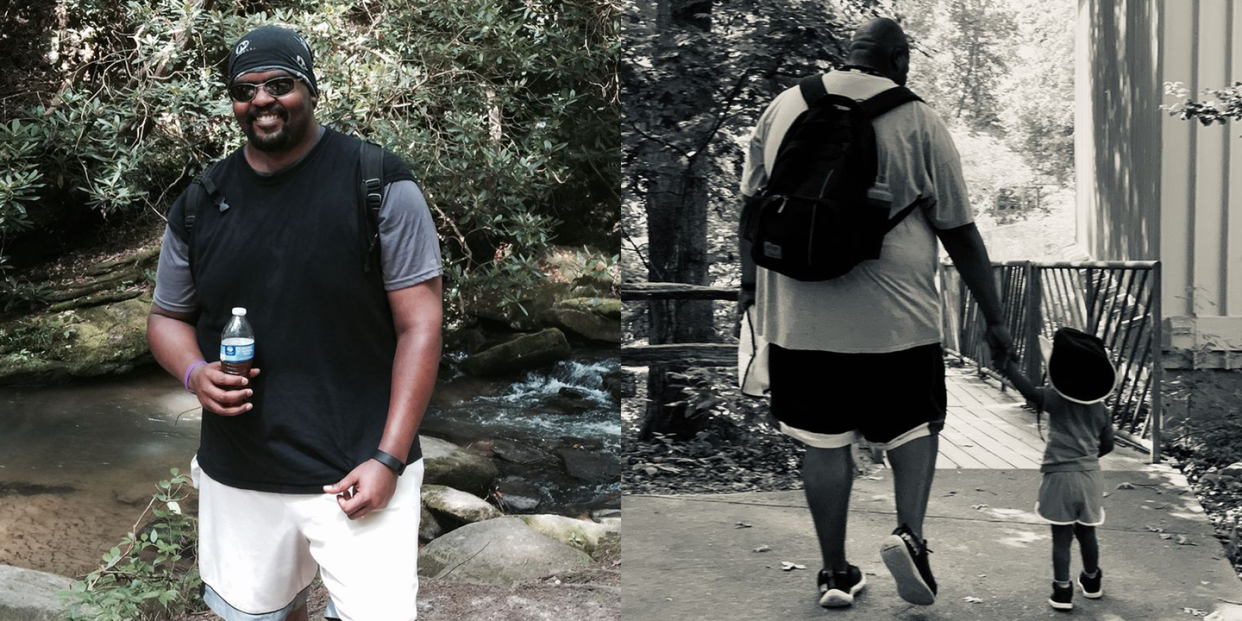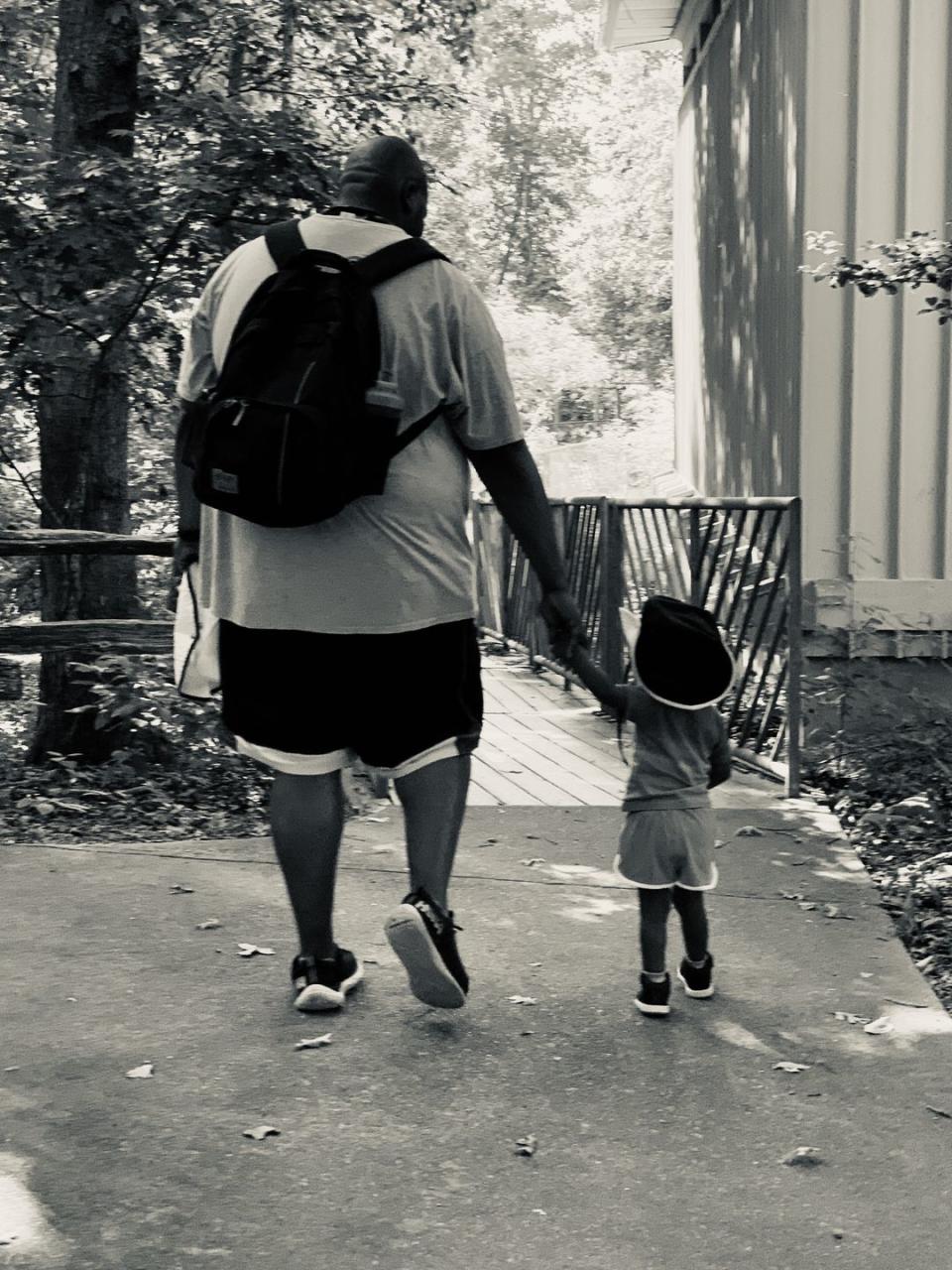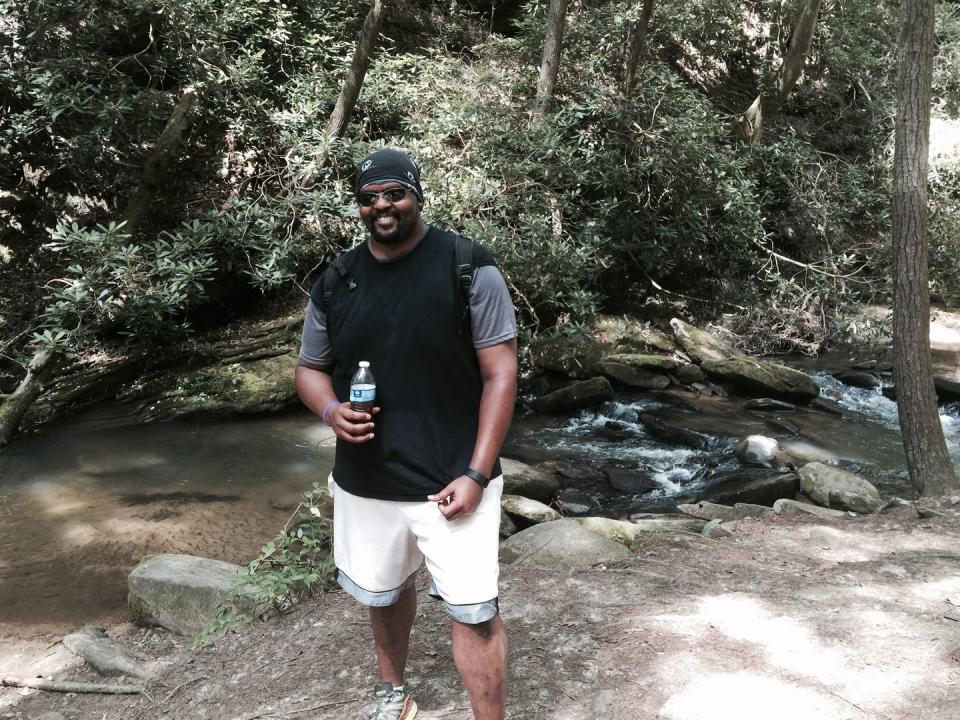“Male Breast Cancer Was Foreign to Me. Next Thing I Knew, I Was Getting a Double Mastectomy.”

I was diagnosed with breast cancer in 2016. I had major surgery. I went through six rounds of chemo and lost my hair. I had to have mammograms. I worried about whether or not I’d be able to have kids eventually. Oh, and did I mention I’m a man? Yep, I’m a black man who survived breast cancer—a disease that’s so often represented by women.
Now, you’re not totally off base thinking of breast cancer as a health issue that affects women. In fact, it’s 100 times more common in women than in men. This year about 2,600 men will be diagnosed with the disease, less than 1% of the total number of breast cancer cases, according to the American Cancer Society (ACS). About 500 men will die from breast cancer, per the ACS—but that’s another 500 people too many, on top of the estimated 41,760 women.
So there’s no questioning that breast cancer is primarily a “woman’s disease.” But it’s doing a disservice to men when we frame it that way.
Now let’s rewind and I’ll walk you through the journey from a guy’s point of view.
I found my breast cancer in the way many people do, by feeling a lump in my pec (or breast, whatever you want to call it).
Well, technically, my wife Stephanie found the lump. I wasn’t exactly doing regular breast self-exams at the time. I didn’t have any other symptoms but she was concerned enough that I decided to see a doctor just to rule out anything scary.
The doctor didn’t seem very worried. I had just lost a lot of weight due to good old-fashioned diet and exercise, and he thought it was most likely some random fatty tissue. Still, he sent me to a specialist to get it checked out, just in case.
You guys, mammograms are weird. I probably don’t have to tell you that, but I don’t think I’d ever appreciated just how unnerving it feels to sit in a room waiting for someone to take a bunch of pictures of your chest. And then all that weird tugging and maneuvering to get in just the right position? It’s tough.
I don’t think they were used to getting many men in the office where I went for my mammogram. I remember watching the women go back to change into medical gowns—but no one told me what I was supposed to do.

The results came back quickly and something didn’t look right. They recommended I come back in for a biopsy but I’d just started a six-week fitness bootcamp challenge and I was determined to win it. The biopsy would mean missing a few workouts and I didn’t want to do that. My doctor gave me the okay to complete the challenge and (drumroll, please) I won!
My joy was short-lived, however. The next day I went in for the biopsy and, a few days later, was stunned to find out I had stage two HER2-positive breast cancer (HER2 stands for human epidermal growth factor receptor). Not only did I have breast cancer, but I also had one of the most aggressive forms of the disease.
After hanging up with my doctor, I immediately left work and just sat in my car for a while trying to take it all in.
This also was not my first medical scare. I had open heart surgery at the age of 19 to remove a tumor. But this felt different. I had heard about it being possible for men to get breast cancer but never imagined it would happen to me. Moreover, I didn’t have any of the major risk factors for it. I was a 33-year-old man in good health and no one in my family—male or female—had a history of breast cancer. I was the first and only one.
My family members were understandably devastated and scared but I told them one of the best things they could do was to surround me with positivity, light, and encouragement. What I wanted most was for them to treat me the same as they always had. I had cancer but I was still me. They did so, even cheering me on as I completed my first Spartan, a grueling eight-mile obstacle race. I wasn’t going to let cancer stop me from doing what I loved. Crossing the finish line of that race is one of my proudest achievements.

My diagnosis was especially hard on Stephanie, though. In addition to being worried about me, she was worried about our future. We knew we wanted a family and the doctors warned us that chemotherapy could hurt my fertility. They told us to think about visiting a clinic to bank sperm before starting treatment. I didn’t have time to do that. Everything was so overwhelming.
In May 2016 I had a double mastectomy.
During surgery the doctors found my cancer had already spread to my lymph nodes. They removed three lymph nodes in addition to the tumor and were able to remove all the cancer. But God had a little surprise in store for us: Two days before my surgery, Stephanie found out she was expecting our daughter. That was one of two miracles I got that week.

My surgery was followed by five rounds of chemotherapy, and now I’m on an estrogen blocker medication. The surgery and treatments were successful and all tests now show no evidence of cancer.
My daughter is 2 years old now and every time I look at her I’m reminded of how blessed I am not just to be her dad, but to be around to watch her grow up.
The toughest part of my cancer journey, though, has been the lack of information about breast cancer for men.
Come on, even the ribbons are pink. But one thing I’ll note is that I never looked at it as a being a black man versus just being a man with breast cancer. There are plenty of stats and studies around breast cancer survival rates based your race and background (like black women, black men with breast cancer tend to have a grimmer outlook compared to other groups).
But I honestly didn't think about those things when I went through this. But I do feel men overall need better representation. In fact, I here from people I meet that they didn't know men could get it at all.
I also want men to know that it’s important to do self-checks, even if that seems like a crazy thought. Men also shouldn’t be afraid to ask their doctors about male breast cancer (even though it is so rare) so they can stay informed. If you find a lump (anywhere) you need to take it seriously. Finally, I want women to know how much your support means to us.

For more on Aubrey's breast cancer story, check out his YouTube channel. For more information on breast cancer in men, check out the American Cancer Society’s FAQ.
You Might Also Like

